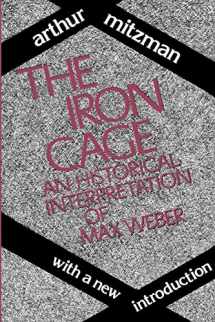
The Iron Cage: Historical Interpretation of Max Weber
Book details
Summary
Description
This major study of the father of modern sociology explores the intimate relationship between the events of Max Weber's personal history and the development of his thought. When it was first published in 1970, Paul Roazen described The Iron Cage as "an example of the history of ideas at its very best"; while Robert A. Nisbet said that "we learn more about Weber's life in this volume than from any other in the English language."
Weber's life and work developed in reaction to the rigidities of familial and social structures in Imperial Germany. In his youth he was torn by irreconcilable tensions between the Bismarckian authoritarianism of his father and the ethical puritanism of his mother. These tensions led to a psychic crisis when, in his thirties, he expelled his father (who died soon thereafter) from his house. His reaction to the collapse of the European social order before and during World War I was no less personal and profound. It is the triumph of Professor Mitzman's approach that he convincingly demonstrates how the internalizing of these severe experiences led to Weber's pessimistic vision of the future as an "iron cage" and to such seminal ideas as the notion of charisma and the concept of the Protestant ethic and its connection with the spirit of capitalism. The author's thesis also serves as a vehicle for describing the social, political, and personal plight of the European bourgeois intellectual of Weber's generation.
In synthesizing Weber's life and thought, Arthur Mitzman has expanded and refined our understanding of this central twentieth-century figure. As Lewis Coser writes in the preface, until now "there has been little attempt to bring together the work and the man, to show the ways in which Weber's cognitive intentions, his choice of problems, were linked with the details of his personal biography. Arthur Mitzman fills this gap brilliantly."


We would LOVE it if you could help us and other readers by reviewing the book
Book review



